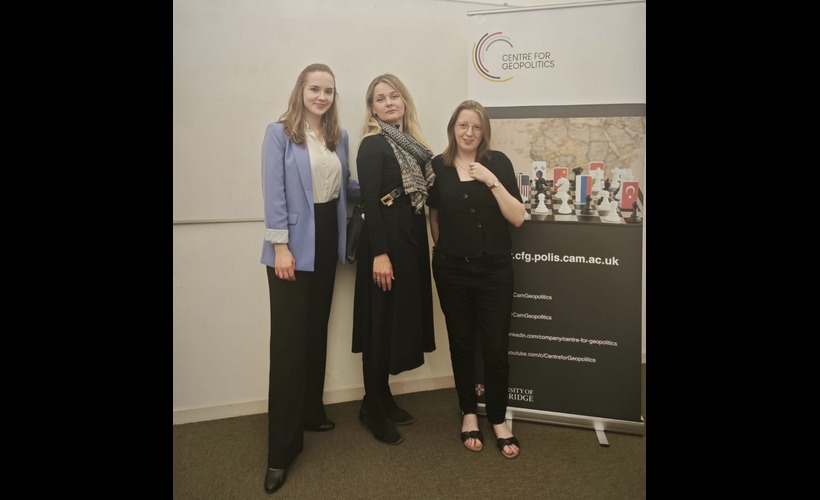By Elvira Tamus, Research Assistant
On Wednesday 17 April 2024, the Centre for Geopolitics hosted a well-attended event on the theme ‘NATO at 75: Assessing the alliance’s past, present, and future’. We were pleased to host a distinguished panel featuring Sir Adam Thomson KCMG, Director of the European Leadership Network and former UK Permanent Representative to NATO from 2014-2016; Peter Apps, Reuters journalist, commentator, and author of Deterring Armageddon: A Biography of NATO; and Dr Marion Messmer, Senior Research Fellow in the International Security Programme at Chatham House. The panel was chaired by Trevelyan Wing, Baltic Fellow of the Centre’s Baltic Geopolitics Programme.
Sir Adam Thomson KCMG kicked off the day’s discussion by stating that NATO should not be measured by its unity, but rather by its cohesion. He also emphasised that adaptability is vital for NATO’s future, that allies must develop a long-term strategic vision regarding Russia – which he noted has long been alarmed by the alliance’s expansion – and that the block must also offer imaginative solutions to armed conflict. Sir Adam expressed his belief that NATO will hold together for at least the next decade, but highlighted an urgent need for the alliance to improve cooperation and coordination, especially around the issue of hybrid attacks and in the face of outside attempts to undermine the internal politics and societies of member states.
Next, Dr Marion Messmer addressed the challenges, risks, and opportunities facing NATO today, asserting that one of its long-term challenges is achieving adequate and sustained investment in military capabilities, as huge divergences in spending could result in different levels of influence and strategic outlooks emerging within the alliance. Russia’s war in Ukraine has helped to improve the block’s cohesion here, she noted, but misinformation can still exert a considerable impact due to varying degrees of resilience between members.
Dr Messmer also raised the threat of populism, coordination of equipment purchases, the allocation of budgets, climate change, the problem of NATO’s credibility and Ukraine’s potential membership, and the multiplying range of risks caused by ongoing conflicts around the world, particularly in the Middle East. At the same time, she described how the recent accession of Finland and Sweden – new members with strong militaries and cyber security capabilities who are experience in combating misinformation – has measurably strengthened the alliance.
Finally, Peter Apps then provided an enlightening overview of NATO’s history and stressed the significance of the work done in the early 1950s following the block’s foundation. He explained the challenges of preserving balance, the importance of near-term security risks, the changes that the evolving political situation and upcoming election in the United States might bring about – for example the rise of the far right, and how NATO might respond to it. Apps also highlighted how the Baltic-Nordic understanding of security has since become the new norm for the alliance, and concluded that ‘big history’, as he put it, is not over – arguing that this period will be studied in 300 years much like the World Wars and Napoleonic Wars before them.
The Q&A session that followed saw a range of interesting questions posed, including on the different pathways ahead for NATO-Russia relations once the conflict in Ukraine is over, how the contemporary geopolitical context differs from that of the Cold War (e.g. with respect to nuclear warfare), the shifting balance of power, Russo-Baltic relations, and the economic and financial aspects of relevance to NATO and its operations. It was a fruitful and thought-provoking discussion, and we thank our esteemed panelists and engaged audience members for their insightful contributions on this important topic.







